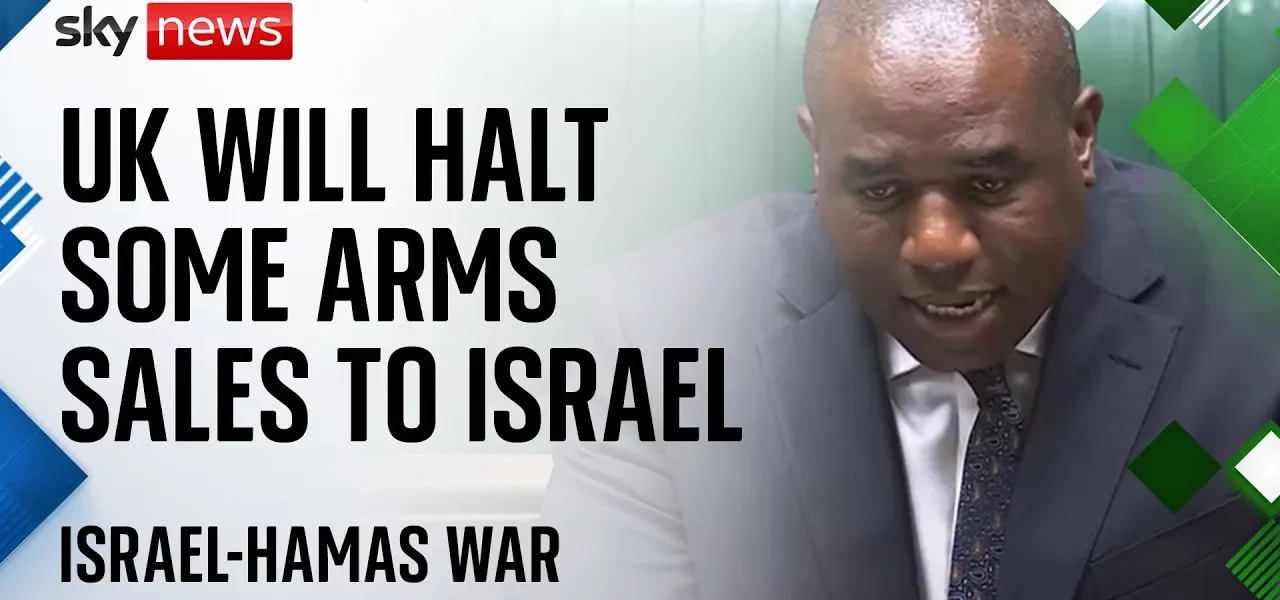UK Arms Exports to Israel: A Critical Review of Recent Developments

This article provides a comprehensive analysis of the UK government’s recent decisions regarding arms exports to Israel, the humanitarian crisis in Gaza, and the broader implications for international law and relations.
Introduction
The UK government’s recent scrutiny of arms exports to Israel has reignited discussions about international humanitarian law and the ongoing humanitarian crisis in Gaza. As a liberal Progressive Zionist, the balance between supporting Israel’s right to exist and defend itself and advocating for Palestinian self-determination remains crucial. This article delves into the UK’s legal obligations, the humanitarian situation in Gaza, and the implications of the two-state solution for lasting peace in the region.
The Humanitarian Crisis in Gaza
The humanitarian conditions in Gaza have reached alarming levels, prompting significant concern from multiple stakeholders including international organizations, legal experts, and the UK Parliament.
Current Situation
Gaza has been facing immense loss of civilian life and widespread destruction of infrastructure. The UK government’s assessment indicates that:
- Vital resources such as food and medical supplies are often inaccessible to civilians.
- The international community has limited access to investigate allegations of human rights violations.
- Credible claims of mistreatment of detainees have emerged, raising further human rights concerns.
International Response
Various international bodies have called for an immediate resolution to the crisis. The response has included:
- Calls for increased humanitarian aid to Gaza.
- Demands for accountability regarding human rights violations.
- Pressure on the Israeli government to ensure the protection of civilians.
UK Arms Export Licensing Review
In light of the humanitarian crisis, the UK government has conducted a thorough review of its arms export licenses to Israel. This review is framed by the Strategic Export Licensing Criteria, which outlines the government’s commitments under international law.
Criteria for Arms Exports
The UK government has a legal duty to ensure that arms exports do not contribute to serious violations of international humanitarian law. The review specifically examines:
- The potential use of exported arms in violations of humanitarian laws.
- Compliance with international norms governing arms sales.
- The impact of these exports on regional stability.
Outcomes of the Review
The assessment has led to the suspension of around 30 export licenses out of approximately 350. The suspended items are primarily those that could be directly used in the ongoing conflict in Gaza, such as:
- Components for military aircraft, including fighter jets and drones.
- Equipment used in ground operations.
However, licenses for non-military uses and those not involved in the current conflict remain intact, ensuring the continuation of civilian trade and support.
Implications of a Two-State Solution
A sustainable resolution to the Israeli-Palestinian conflict is widely believed to hinge on the realization of a two-state solution. This section explores the significance of this approach.
Historical Context
The two-state solution has been a longstanding proposal for resolving the Israeli-Palestinian conflict. It envisions:
- A secure and recognized state of Israel.
- A sovereign state for Palestinians, ensuring their right to self-determination.
Challenges to Implementation
Despite its potential, several challenges hinder the realization of a two-state solution:
- The ongoing expansion of Israeli settlements in disputed territories.
- Deep-rooted political divisions between Palestinian factions.
- Violence and retaliatory actions undermining trust between communities.
Conclusion
The UK government’s recent review of arms exports to Israel highlights the complex interplay between national security interests and international humanitarian obligations. As the situation in Gaza continues to evolve, it remains imperative for the UK and its allies to advocate for a two-state solution that respects the rights of all individuals involved. Moving forward, ongoing dialogue, transparency, and accountability will be crucial in addressing the humanitarian crisis and fostering a lasting peace in the region.
For more detailed insights on international humanitarian law and its implications, feel free to explore our related articles on the topic.
“`




